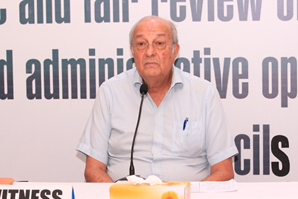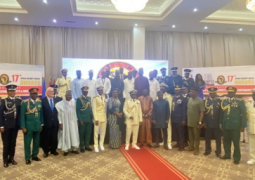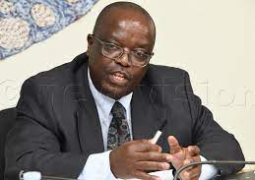
Testifying before the commission , Elhajj admitted that he paid D2 million to the BCC for a piece of land behind the National Assembly without seeing the land or signing any formal agreement with the purported business partners he claimed to represent.
He stated that the payment was made based on a verbal business proposal with a Nigerian company named Fuwani, despite having no prior dealings or documented evidence to support the relationship.
However, it later emerged that the D2 million was not from Fuwani, but rather from Nandu, owner of EMK Stores the same party who ultimately acquired the land.
Elhajj later requested that the land, which was never officially transferred to him, be handed over to EMK Stores instead. The BCC, relying solely on a letter from Elhajj that was not a legal power of attorney, approved the transfer.
Lead counsel Gomez grilled Elhajj on the inconsistencies in his testimony, pointing out that he paid D2 million and then sold the land for D15 million, netting a profit of D13 million without having a formal lease, project plan, or credible business partner.
Gomez accused Elhajj of using the claim of a joint venture to secure valuable public land under false pretenses.
“You claimed you had partners, but everything shows that Nandu was in the picture from the very beginning,” Gomez said. “You had no agreement, no feasibility study, no documentation. What you did was buy land for D2 million and flip it for D15 million.”
Elhajj did not dispute the profit figure, simply stating, “If you do A minus B, that is correct,” while noting there were risks involved.
Former BCC CEO Mustapha Batchilly, who was called in for joint testimony, admitted that the land was never formally leased to Elhajj.
He also acknowledged that the Council relied on a non-binding letter to execute the transfer to EMK Stores. When asked if the Council had been tricked, Batchilly responded, “Yes.”
Further documents presented showed that the agreement between EMK Stores and Elhajj’s company, C-Consulting, was signed on April 14, while the payment to the BCC was made on May 20th indicating that the land had already been promised or sold before the official transaction was completed.
Gomez questioned why the Mayor and BCC approved the land allocation without any evidence of the supposed Nigerian partners or a valid proposal.
Batchilly admitted that he sent a WhatsApp message to the Mayor upon learning that Elhajj had sold the land to EMK Stores, expressing his surprise. The Mayor allegedly responded that she too was unaware of the sale.
Furthermore, EMK Stores later sent letters through their lawyer claiming D35 million in expenses for land backfilling and development, despite no clear approval or documentation supporting such costs.
Gomez ultimately accused Elhajj and BCC officials of engaging in fraudulent practices, suggesting that the land deal was orchestrated from the start with the intention of making a massive profit at the expense of public resources.
“You cannot walk into the office of the Mayor and walk out with public land based on nothing but a verbal claim of partners. That’s not how it works,” Gomez said.
Elhajj denied all allegations of fraud but failed to provide any documentation to counter the growing evidence of irregularities.
Subsequently, Batchilly was ordered to present a full record of land allocations made by the Council.





